| COVID – 19: ECOWAS Donates Food to the most Vulnerable Households in Mali
Bamako, 8th November 2020. Faced with the effects of the coronavirus pandemic (COVID -19), which is exacerbating humanitarian challenges in Mali, already confronted with the cumulative effects of terrorism, global warming, and the anticipated risk of the invasion of crop pests such as desert locusts and the Fall armyworm, the ECOWAS Commission provided support to the Malian Government on Saturday 7th November 2020 for the most vulnerable households.
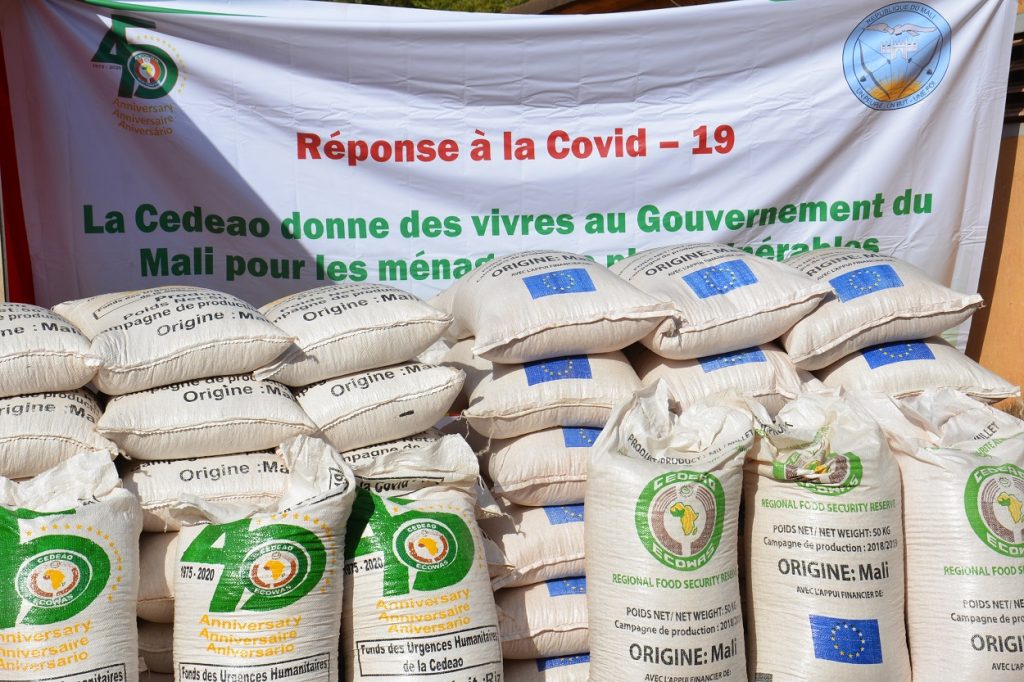 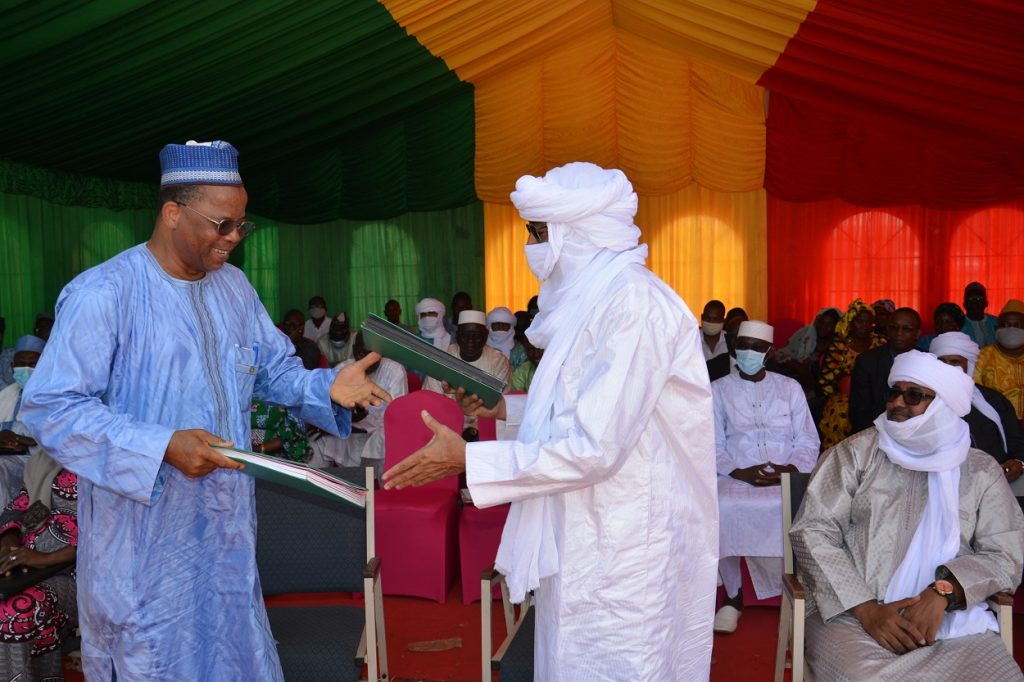
This regional solidarity was demonstrated through food donations of 793 tons of cereals comprising of millet, maize, sorghum, and rice. The first donation consists of 237 tons of cereals financed by the ECOWAS Commission’s Humanitarian Emergency Fund for Disaster and Emergency Relief to Member States affected by a humanitarian crisis while the second donation of 556 tons is funded by the resources of the Regional Food Security Storage Support Project, which the European Union is financing for a total amount of €56 million.
These two donations, complementing the multidimensional support that the ECOWAS Commission has provided to Mali since the advent of COVID-19 in the country on March 24th, 2020, were handed over to Mr. Alhamdou Ag Ilène, Minister for the Malian Diaspora and African Integration by Mr. Sekou Sangaré and Dr. Siga Fatima Jagne, Commissioners in charge of Agriculture, Environment and Water Resources and Social Affairs and Gender respectively at the ECOWAS Commission.
“The contribution of the ECOWAS Emergency Humanitarian Fund to the Malian Government’s efforts aims at helping the most vulnerable households to cope with the multiple crises while preserving their livelihood and dignity,” Commissioner Jagne said before inviting all development actors to work, in a concerted manner, to curb recurring crises to which the perverse effects of the COVID-19 pandemic have been added.
In the same vein, her colleague Sangaré insisted that the COVID-19 pandemic cuts across all sectors and disrupts production, storage, marketing, processing, and distribution of agricultural and food products. As such, Mali and the entire region must build on the lessons learned, take advantage of the enormous potential of the region to increase animal and plant production, and move forward to food security and sovereignty.
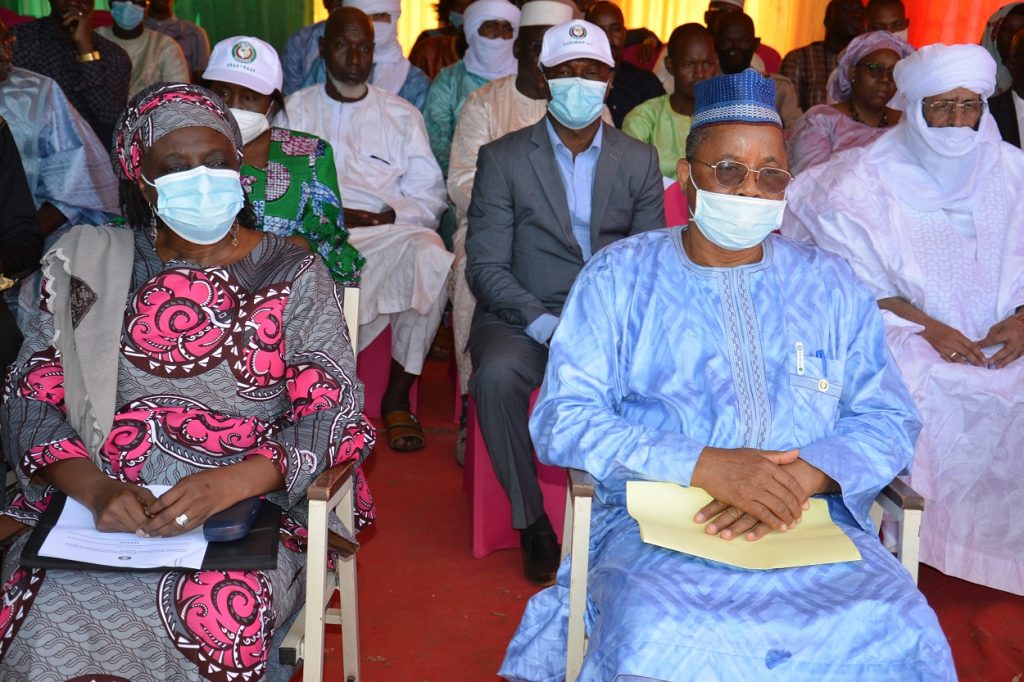 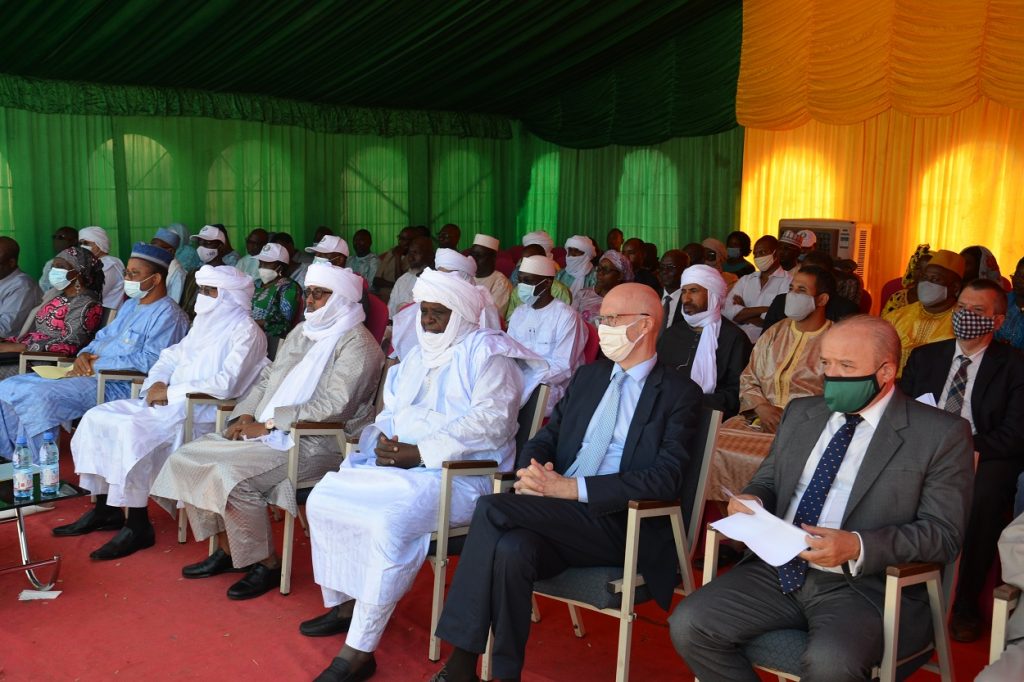 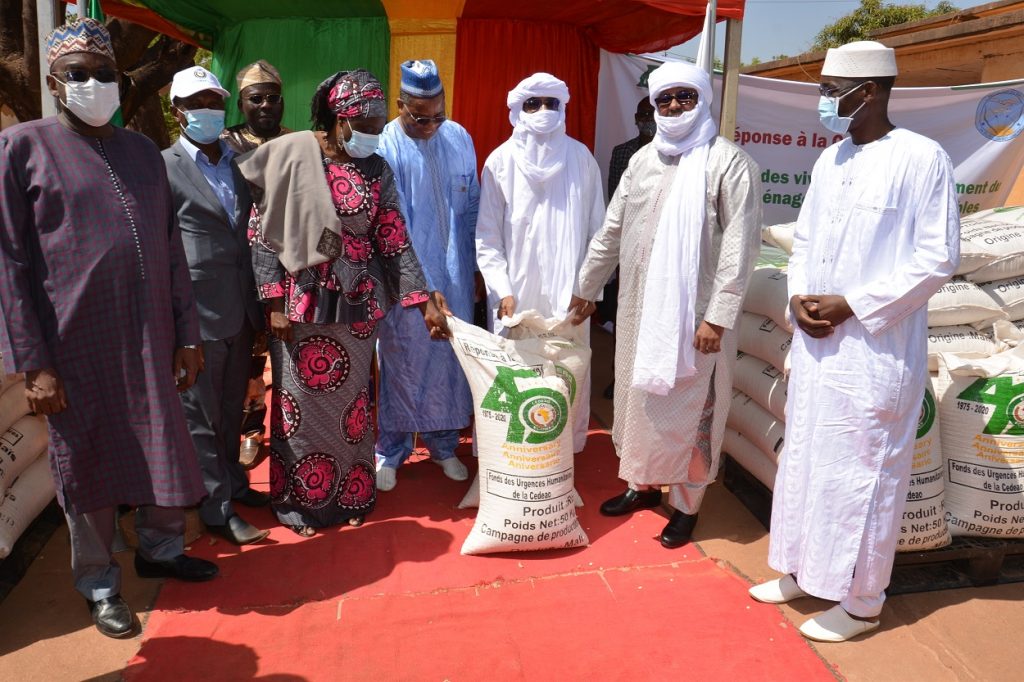
For Minister Alhamdou, representing the Malian Government, these food donations come at the right time because the food needs of the populations (particularly internally displaced persons and children affected by malnutrition) are enormous. He expressed the warm thanks of the Malian People to the ECOWAS Commission and committed his colleague, Mr. Redouwane Ag Mohamed Ali, Minister for Food Security, to ensure that these donations are effectively distributed free of charge to the targeted most vulnerable households.
Recalling that the ECOWAS Humanitarian Policy aims to prevent, mitigate, and provide durable solutions to the complex emergencies and its effects, including natural and man-made disasters in the region. It complements the ECOWAS Disaster Risk Reduction Policy which focuses on disaster risk reduction through the design of interventions aimed at reducing risks as an obstacle to development.
Established on February 28, 2013 in Yamoussoukro, Côte d’Ivoire, by the ECOWAS Heads of State and Government, the Regional Food Security Reserve aims, to complement the efforts of Member States to provide diversified rapid food and nutritional assistance. |








